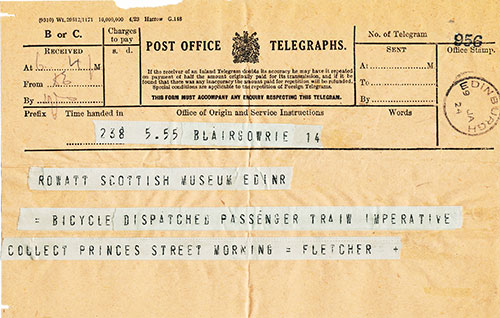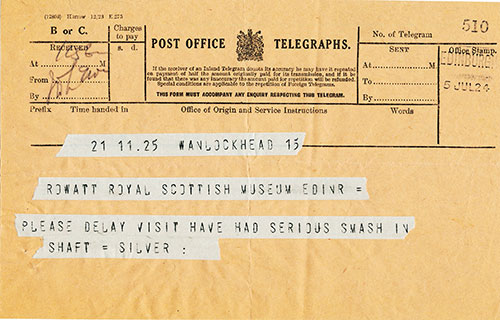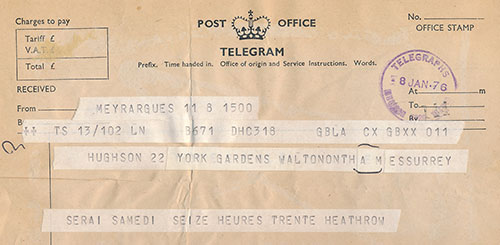In February this year I was offered a unique opportunity to be involved in an exciting project initiated by the Science Museum in London, which aims to narrate British history through telegram messages.
Whilst museums, when displaying the history of communication, usually concentrate on the thrilling machinery used to send telegrams, the stories that telegrams tell have remained largely unexplored.
Constructing their new Information Age gallery, London Science Museum has decided to display not only the machines, but also the spectrum of messages that were sent through them. During the past few months, I have been involved in preparations to record telegrams not only for the benefit of the Science Museum’s collection, but also for the National Museum of Scotland.
I am currently contacting local museums, societies and associations in Scotland which could help spread the word about the project in their communities. After establishing my contacts, I will invite people to bring in their telegrams, which I will then scan. People have an option to either donate the original telegram to either of the museums or to allow me to add a digital copy to their preferred museum’s collections.


Although the official collecting campaign is taking place in July, I have already scanned some great telegrams brought in by the staff and volunteers of National Museums Scotland. I have got a flavour of British India in the 1890s, and experienced life in the roaring ‘70s via telegrams sent by a staff member’s father (a member of a rock band) to her mother (a Lionel Blair girl), both touring the country with their troupes.

Some other telegrams, however, have more intimate stories to tell, for example, a grandmother announcing her arrival from France to help to care for a grandchild gravely ill with meningitis.

Earlier in May I had a fantastic opportunity to travel to Aultbea in the Scottish Highlands to introduce the project to the veterans of the Russian Arctic Convoys. Anna McKessock, daughter of one of the men serving in the Arctic Convoys in the 1940s, holds the train ticket and telegram sent to her father, Stanley, to inform him of the death of his mother. However, the return trip from Aberdeen turned into an adventure of its own:
“His mother died when he was based in the South of England and he had gone home to Aberdeen for her funeral. He was sitting on the train from Aberdeen back down south and… a group of lassies got on the train somewhere outside Newcastle and started talking to him. The next thing he knew, they pulled him off the train and he ended up spending the day at their work – a Newcastle brewery! They were brilliant lassies… he got free beer all day. He made it back to his ship but he cannae remember how…” tells Anna.

Talking to the veterans and local villagers in Aultbea showed me how unique the riches can be that so many people hide at home! I am very happy that I can be part of unveiling Scotland’s telegram stories and I hope that people will continue to help me share their experiences, whether personal or wrapped in local or national history.